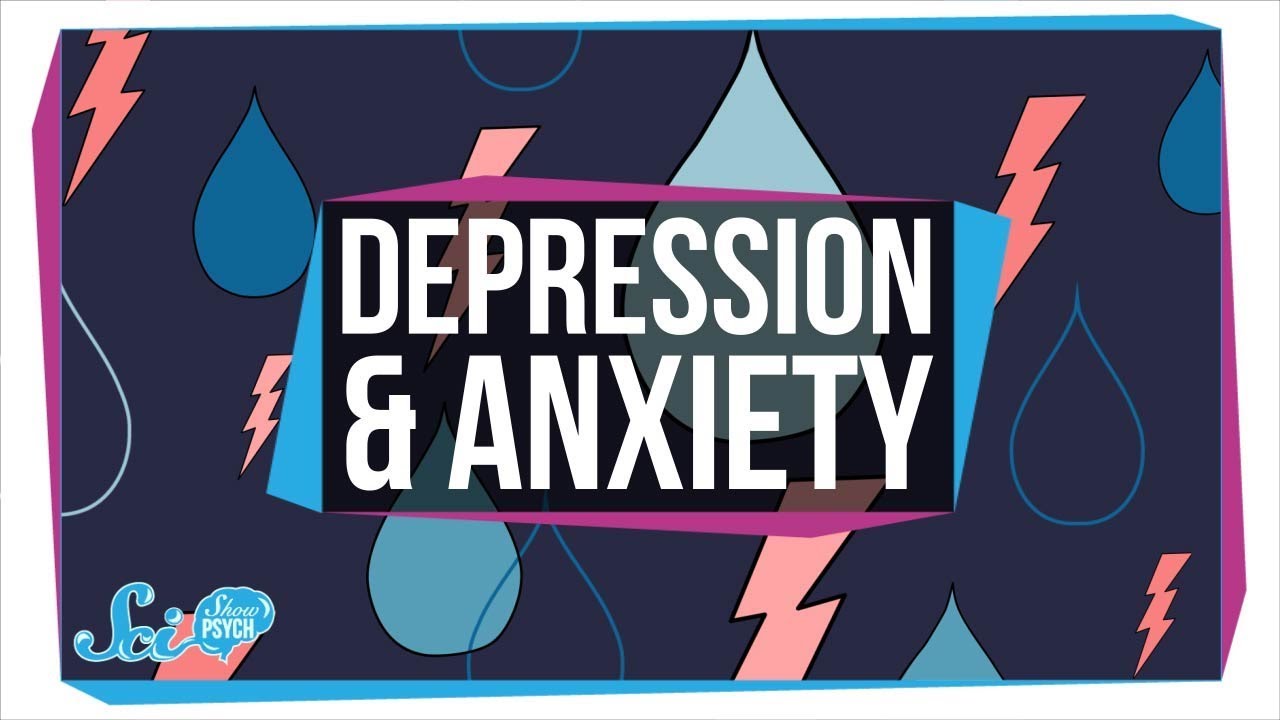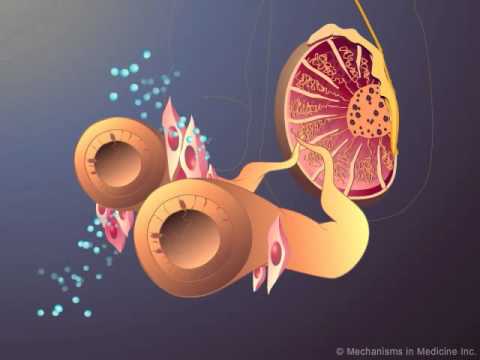The Relationship Between Anxiety and Depression: How to Treat Co-occurring Disorders

Understanding the Link Between Anxiety and Depression
Anxiety and depression are two mental health conditions that often go hand in hand, leading to significant distress and impairment in individuals. Understanding the link between these two conditions is crucial for effective diagnosis and treatment. While anxiety and depression are separate disorders, they frequently occur together, with research suggesting that almost 50% of individuals diagnosed with one condition also meet the criteria for the other.
The relationship between anxiety and depression is complex and multifaceted. Both conditions share common symptoms, such as persistent feelings of sadness, decreased interest in activities, and changes in sleep patterns. Additionally, they both involve dysregulation in brain chemistry and neurotransmitters, particularly serotonin, which plays a vital role in mood regulation. Furthermore, individuals with anxiety often experience excessive worrying, which can contribute to the development of depressive symptoms. Conversely, the lethargy and lack of motivation commonly experienced in depression can exacerbate anxiety symptoms. Indeed, it is this intricate interplay between anxiety and depression that makes it challenging to distinguish between the two disorders and diagnose them accurately.
Recognizing the Symptoms of Co-occurring Anxiety and Depression

Recognizing the symptoms of co-occurring anxiety and depression is crucial for early detection and effective treatment. Both anxiety and depression are common mental health disorders that can occur independently, but they often coexist and exacerbate each other’s symptoms. By understanding the signs and symptoms of these co-occurring disorders, individuals and healthcare professionals can intervene promptly and provide appropriate support.
One of the key symptoms of co-occurring anxiety and depression is persistent feelings of sadness or unhappiness, coupled with excessive worry and fear. Individuals may experience overwhelming feelings of hopelessness and find it challenging to overcome negative thoughts. Insomnia or excessive sleeping, changes in appetite resulting in weight loss or gain, and low energy levels are often observed in individuals with this dual diagnosis. They may also struggle with concentration, memory, and decision-making, impairing their daily functioning. Physical symptoms such as headaches, digestive problems, and muscle tension can also manifest in those with co-occurring anxiety and depression.
It is important to highlight that while these symptoms are common, they can vary in intensity and presentation among individuals. That is why a thorough assessment by a healthcare professional is crucial to determine the presence and severity of co-occurring anxiety and depression. By recognizing these symptoms and seeking appropriate help, individuals can embark on a journey towards recovery and regain control over their mental well-being.
The Impact of Co-occurring Disorders on Mental Health

Co-occurring disorders, such as anxiety and depression, can have a significant impact on an individual’s mental health. These two conditions often go hand in hand, feeding off each other and intensifying the symptoms experienced. The simultaneous presence of anxiety and depression can create a vicious cycle, making it even more challenging for individuals to find relief and regain their mental well-being.
The impact of co-occurring disorders on mental health cannot be underestimated. Individuals who struggle with both anxiety and depression often experience heightened levels of stress, difficulty in managing emotions, and a decreased ability to function in their daily lives. Symptoms such as persistent worry, feelings of sadness or hopelessness, irritability, difficulty concentrating, and changes in appetite or sleep patterns can significantly impair a person’s quality of life. Moreover, the burden of these disorders can extend to interpersonal relationships, work performance, and overall life satisfaction, affecting every aspect of a person’s well-being. It is crucial to recognize the severity of this impact and the need for comprehensive treatment and support to address co-occurring anxiety and depression effectively.
Exploring the Interplay Between Anxiety and Depression
Anxiety and depression are two common mental health disorders that often go hand in hand. As we explore the interplay between these two conditions, it becomes clear that they are closely intertwined, with each influencing and exacerbating the other. Many individuals who experience anxiety also find themselves battling depressive symptoms, and vice versa.
One possible explanation for this interplay is the shared neurochemical imbalances that underlie both conditions. Research has shown that individuals with anxiety and depression have higher levels of stress hormones, such as cortisol, which can alter brain chemistry and contribute to the development and worsening of symptoms. Additionally, both anxiety and depression are associated with dysregulation of certain neurotransmitters, such as serotonin and dopamine, which play crucial roles in regulating mood and emotions.
Furthermore, the thought patterns and cognitive biases associated with anxiety and depression can perpetuate and intensify each other. Anxiety often leads to excessive worry and rumination, while depression is characterized by negative thinking patterns and a sense of hopelessness. Together, these cognitive processes can create a vicious cycle, amplifying feelings of anxiety and depression and making it difficult to break free from their grip.
It is essential to recognize and address the interplay between anxiety and depression in order to effectively manage these conditions. By understanding the underlying mechanisms and developing holistic treatment approaches that target both disorders, healthcare professionals can help individuals navigate the complex web of anxiety and depression, providing them with the tools and support they need to find relief and improve their overall well-being.
Common Risk Factors for Co-occurring Anxiety and Depression
Research has shown that there are several common risk factors that contribute to the co-occurrence of anxiety and depression. One notable risk factor is a history of traumatic experiences. People who have experienced traumatic events, such as physical or sexual abuse, are more likely to develop both anxiety and depression. The lasting emotional impact of these traumas can lead to heightened feelings of fear, worry, and sadness.
Another significant risk factor is a family history of anxiety or depression. Numerous studies have found that individuals with a family history of these mental health disorders have an increased likelihood of developing both conditions themselves. This suggests a genetic component in the development of anxiety and depression. Additionally, growing up in a household where anxiety or depression is present can also contribute to the development of these co-occurring disorders. The environment in which a person is raised plays a crucial role in shaping their mental health.
In addition to these risk factors, chronic stress and ongoing life challenges are also known to contribute to the development of anxiety and depression. High levels of stress can activate the body’s stress response system, leading to increased anxiety symptoms. Over time, this chronic stress can also contribute to the development of depression. Furthermore, individuals who face ongoing life challenges, such as financial difficulties or relationship problems, may also be more prone to experiencing anxiety and depression simultaneously.
Understanding these common risk factors is essential for identifying individuals who may be at a higher risk for developing co-occurring anxiety and depression. By recognizing these factors, healthcare professionals can provide targeted interventions and support to help prevent the onset or exacerbation of these mental health disorders.
Certainly! Here’s a table summarizing common risk factors for co-occurring anxiety and depression:
| Common Risk Factors for Co-occurring Anxiety and Depression | Description |
|---|---|
| Genetic Predisposition | Family History: Presence of anxiety or depression in family members may increase the risk. |
| Shared Genetic Factors: Shared genetic vulnerabilities may contribute to the co-occurrence of both conditions. | |
| Brain Chemistry Imbalance | Neurotransmitter Irregularities: Imbalances in serotonin, dopamine, and norepinephrine may play a role. |
| Brain Structure Differences: Structural differences in certain brain areas associated with mood regulation. | |
| Trauma and Stressful Life Events | Early Life Trauma: Childhood trauma or adverse experiences may contribute to the development of both conditions. |
| Chronic Stress: Prolonged exposure to stressors can increase the risk of anxiety and depression co-occurrence. | |
| Personality Factors | High Neuroticism: Individuals with a predisposition to negative emotions and stress may be more susceptible. |
| Low Resilience: Lack of resilience in coping with life’s challenges may contribute to the development of both conditions. | |
| Chronic Medical Conditions | Painful or Debilitating Conditions: Chronic illnesses can impact mental health and increase the risk of anxiety and depression. |
| Inflammatory Conditions: Inflammation in the body may be linked to both physical and mental health issues. | |
| Substance Abuse and Addiction | Self-Medication: Using substances to cope with symptoms may exacerbate or trigger co-occurring anxiety and depression. |
| Neurochemical Changes: Substance abuse can alter brain chemistry, contributing to the development of mood disorders. | |
| Family and Environmental Factors | Dysfunctional Family Dynamics: Unsupportive or dysfunctional family environments may contribute to the onset of both conditions. |
| Lack of Social Support: Limited social support and isolation can be risk factors for co-occurring anxiety and depression. | |
| Previous Mental Health History | History of Anxiety or Depression: Individuals with a history of one disorder may be at a higher risk of developing the other. |
| Incomplete Treatment: Insufficient or incomplete treatment of a prior mental health condition may increase the risk of recurrence. | |
| Cognitive Biases and Negative Thinking Patterns | Rumination: Excessive dwelling on negative thoughts and experiences can contribute to the maintenance of both anxiety and depression. |
| Cognitive Distortions: Distorted thinking patterns may reinforce negative beliefs and emotions associated with anxiety and depression. |
The Role of Genetics in Co-occurring Anxiety and Depression
The Role of Genetics in Co-occurring Anxiety and Depression
When it comes to understanding the link between anxiety and depression, one aspect that cannot be overlooked is the role of genetics. Research has shown that genetic factors can play a significant role in the development of these co-occurring disorders. In fact, studies have suggested that individuals with a family history of anxiety or depression may be more predisposed to experiencing both conditions simultaneously.
Genetic studies have identified specific genes that may be associated with an increased risk of developing anxiety and depression. These genes are involved in various biological processes, such as regulating the production and function of neurotransmitters, which are chemicals that transmit signals between brain cells. Additionally, genetic variations in the serotonin transporter gene (SLC6A4) have been linked to an increased susceptibility to anxiety and depression. Serotonin is a neurotransmitter known to affect mood, and any disruptions in its function can lead to mental health disorders.
While genetics can certainly influence the development of co-occurring anxiety and depression, it is important to note that genetic factors alone do not determine the presence of these disorders. External factors, such as life experiences, trauma, and environmental stressors, can also contribute significantly to the manifestation of anxiety and depression. This is known as the gene-environment interaction, where genetic predisposition interacts with environmental factors to influence mental health outcomes.
Understanding the role of genetics in co-occurring anxiety and depression can shed light on the complexity of these disorders and help individuals and healthcare professionals develop more targeted treatment approaches. By recognizing the genetic components involved, we can work towards tailoring interventions that address the unique needs of individuals with a genetic predisposition for these conditions. However, it is crucial to remember that genetic factors are just one piece of the puzzle, and a comprehensive approach that considers both biological and environmental factors is essential for effectively managing co-occurring anxiety and depression.
The Importance of Early Detection and Diagnosis
Early detection and diagnosis play a critical role in managing and treating co-occurring anxiety and depression. The sooner individuals receive appropriate care, the better their outcomes tend to be. Research has consistently shown that early intervention can significantly reduce the severity of symptoms, improve quality of life, and enhance overall functioning.
One key reason why early detection is crucial is that the longer anxiety and depression remain undiagnosed and untreated, the more they can worsen and perpetuate a cycle of distress. It’s important to remember that anxiety and depression are real medical conditions that require professional attention. Delaying diagnosis can lead to a range of negative consequences, including increased risk of self-harm, impaired social and occupational functioning, and decreased response to treatment.
Furthermore, early detection allows healthcare professionals to develop personalized treatment plans that target both anxiety and depression concurrently. This comprehensive approach is essential since these disorders often co-occur, and addressing one without the other may not be as effective. Timing matters, and seeking help at the earliest signs of distress can lead to a more successful management of co-occurring anxiety and depression.
Evidence-Based Approaches to Treating Co-occurring Anxiety and Depression
When it comes to treating co-occurring anxiety and depression, evidence-based approaches offer a scientific and effective way to address these complex mental health conditions. These approaches are grounded in research and have been proven to have a positive impact on individuals experiencing both anxiety and depression.
One such evidence-based approach is cognitive behavioral therapy (CBT). CBT focuses on identifying and challenging negative thought patterns and behaviors that contribute to anxiety and depression. Through CBT, individuals are guided to develop healthier coping mechanisms and adopt more positive and rational ways of thinking. Numerous studies have shown the effectiveness of CBT in reducing symptoms of anxiety and depression and improving overall well-being.
Another evidence-based approach is medication management. Certain medications, such as selective serotonin reuptake inhibitors (SSRIs), can be prescribed to help regulate and stabilize mood in individuals with co-occurring anxiety and depression. These medications work by increasing the levels of serotonin, a neurotransmitter involved in mood regulation, in the brain. However, it’s important to note that medication should always be used in conjunction with therapy and under the guidance of a healthcare professional.
Overall, evidence-based approaches provide a solid foundation for treating co-occurring anxiety and depression. By combining therapies, like CBT, with targeted medication management, individuals can receive comprehensive and personalized care that addresses their unique needs and promotes long-term recovery.
Cognitive Behavioral Therapy: A Valuable Tool in Treatment
Cognitive Behavioral Therapy (CBT) has emerged as a valuable tool in the treatment of co-occurring anxiety and depression. This evidence-based approach focuses on identifying and changing negative thought patterns and behaviors that contribute to these conditions. By addressing the underlying beliefs and patterns of thinking that perpetuate anxiety and depression, CBT empowers individuals to develop healthier coping strategies and build resilience.
Research has shown that CBT can be highly effective in reducing symptoms of anxiety and depression. In a study published in the Journal of Consulting and Clinical Psychology, researchers found that individuals who received CBT showed significant improvements in symptom severity compared to those who did not receive therapy. Another study published in the Archives of General Psychiatry demonstrated that CBT was equally effective as medication in the treatment of major depression.
One of the key advantages of CBT is its focus on empowering individuals to take an active role in their own recovery. Through the therapeutic process, individuals learn to challenge and reframe negative thoughts, develop problem-solving skills, and implement effective strategies to manage stress and anxiety. This collaborative approach between the therapist and client allows for personalized treatment plans tailored to the unique needs of each individual.
Moreover, CBT is a time-limited therapy, typically consisting of a defined number of sessions, making it a practical option for individuals seeking relief from co-occurring anxiety and depression. The structured nature of CBT allows individuals to work towards specific goals in a focused and efficient manner. This can be especially helpful for individuals who may be juggling multiple responsibilities and commitments.
In conclusion, cognitive behavioral therapy stands as a valuable tool in the treatment of co-occurring anxiety and depression. With its evidence-based approach and focus on empowering individuals to develop healthier coping strategies, CBT offers hope and relief to those navigating the challenges of these complex conditions. By addressing the underlying thought patterns and behaviors that contribute to anxiety and depression, CBT can pave the way for lasting positive change and improved mental well-being.
Medication Options for Managing Co-occurring Disorders
Medication can be a valuable tool in managing co-occurring anxiety and depression. It is important to note that medication is not a one-size-fits-all solution and should be prescribed and monitored by a healthcare professional. There are several classes of medications that are commonly used to treat these conditions, including selective serotonin reuptake inhibitors (SSRIs), serotonin-norepinephrine reuptake inhibitors (SNRIs), and benzodiazepines.
SSRIs, such as fluoxetine and sertraline, are often the first line of treatment for anxiety and depression. They work by increasing the levels of serotonin, a neurotransmitter that is involved in mood regulation, in the brain. SNRIs, such as venlafaxine and duloxetine, work in a similar manner by increasing the levels of both serotonin and norepinephrine. Benzodiazepines, such as diazepam and lorazepam, are a class of medications that are used to provide short-term relief from anxiety symptoms. They work by enhancing the effects of a neurotransmitter called gamma-aminobutyric acid (GABA) in the brain, which helps to reduce anxiety.
It is important to note that medication alone is not a cure for co-occurring anxiety and depression. It is often most effective when combined with other treatment approaches, such as therapy and lifestyle changes. Additionally, finding the right medication and dosage can sometimes be a process of trial and error, as different individuals may respond differently to different medications. Therefore, close communication with a healthcare professional is essential in finding the most effective medication regimen for managing co-occurring disorders.
Lifestyle Changes to Support Mental Health and Well-being
Lifestyle plays a significant role in supporting mental health and overall well-being. Making certain changes in our everyday habits can have a positive impact on our mental state and help alleviate symptoms of anxiety and depression. One essential lifestyle change is maintaining a balanced diet. Consuming nutrient-rich foods such as fruits, vegetables, whole grains, lean proteins, and healthy fats can provide essential vitamins and minerals that promote brain health and mood stability. Additionally, avoiding excessive caffeine, sugar, and processed foods can prevent mood fluctuations and promote a more stable emotional state.
Incorporating regular physical activity into our daily routine is another crucial lifestyle change that can benefit mental health. Engaging in exercise releases endorphins, which are natural mood enhancers. Exercise has been proven to reduce symptoms of anxiety and depression by increasing neurotransmitters like serotonin and dopamine in the brain. Even a short walk or a quick yoga session can have a significant impact on our mental well-being. Making time for physical activity not only helps manage stress but also enhances self-esteem and promotes a sense of accomplishment.
Building a Strong Support System for Coping with Co-occurring Disorders
Building a strong support system is crucial for individuals coping with co-occurring anxiety and depression. Surrounding oneself with a network of understanding and empathetic individuals can provide a sense of belonging and foster emotional well-being. Moreover, a strong support system offers practical assistance in times of need and serves as a source of encouragement and motivation throughout the recovery process. Research indicates that individuals with strong social support are more likely to experience positive mental health outcomes and a reduction in symptoms related to their co-occurring disorders.
When building a support system, it is important to consider various sources of support. Friends, family members, and peers who have gone through similar experiences can provide comfort, understanding, and relatability. Additionally, seeking professional support from therapists or support groups can offer specialized guidance and strategies for managing anxiety and depression. Virtual platforms, such as online forums or helplines, can also be valuable resources for individuals who may feel more comfortable seeking support anonymously. Finally, engaging in activities that foster a sense of community, such as joining clubs or participating in hobbies, can help individuals establish connections and build a stronger support system.
By having a strong support system in place, individuals coping with co-occurring anxiety and depression can find solace in knowing they are not alone in their struggles. Having reliable individuals to turn to during challenging times and celebrating victories together can provide a sense of validation and encouragement. Building a strong support system is an active step towards promoting mental health and well-being, and it is an essential component of the journey towards managing co-occurring disorders effectively.
The Role of Self-Care in Managing Anxiety and Depression
Self-care plays a crucial role in managing anxiety and depression. Taking care of oneself physically, emotionally, and mentally can have a significant impact on one’s overall well-being and mental health. It is essential to recognize that self-care is not a luxury but a necessity, especially when dealing with co-occurring anxiety and depression.
Physical self-care involves prioritizing activities that promote physical health and reduce stress. Engaging in regular exercise, getting enough sleep, and maintaining a balanced and nutritious diet can help alleviate symptoms of anxiety and depression. Exercise, in particular, has been shown to release endorphins, which improve mood and reduce stress levels. Additionally, practicing relaxation techniques such as deep breathing exercises or yoga can help calm the mind and reduce anxiety.
Emotional self-care involves acknowledging and expressing one’s emotions in a healthy way. It is vital to cultivate self-compassion and self-acceptance, understanding that it is normal to experience a wide range of emotions. Engaging in activities that bring joy and relaxation, such as hobbies or spending time with loved ones, can also contribute to emotional well-being. Furthermore, seeking support from a psychologist or joining support groups can provide a safe space to discuss feelings and receive guidance on coping strategies.
In conclusion, practicing self-care is a fundamental aspect of managing anxiety and depression. Taking the time to prioritize physical, emotional, and mental well-being is crucial for overall mental health. By incorporating self-care techniques into daily routines, individuals can empower themselves to better cope with the challenges of anxiety and depression. It is important to remember that self-care looks different for everyone, so finding what works best for oneself is key in promoting long-term mental well-being.
Overcoming Stigma and Seeking Help for Co-occurring Disorders
Seeking help for co-occurring disorders, such as anxiety and depression, can be a difficult and daunting step to take. Unfortunately, there is still a significant stigma surrounding mental health issues, which can prevent individuals from seeking the help they need. However, it’s essential to remember that seeking help is a sign of strength and courage, and it can greatly improve your overall well-being.
Overcoming stigma starts with education and understanding. Many people believe that mental health issues are a personal weakness or a lack of willpower, but this is far from the truth. Mental health disorders are complex conditions that can arise from a combination of genetic, biological, and environmental factors. They are not a reflection of personal character or weaknesses. By educating ourselves and others about the true nature of mental health disorders, we can break down the barriers that prevent people from seeking help and create a more supportive and understanding society.
When seeking help for co-occurring disorders, it’s crucial to reach out to qualified professionals. Mental health professionals, such as psychiatrists, psychologists, or licensed therapists, have the knowledge and expertise to diagnose and treat these conditions effectively. They can provide evidence-based therapies, such as cognitive-behavioral therapy (CBT), medication management, and other interventions to help individuals manage their anxiety and depression. Seeking professional help is not a sign of weakness or failure but a proactive step towards improving one’s mental health and overall quality of life.
Furthermore, it’s important to remember that you are not alone in your journey. Support from friends, loved ones, or support groups can provide a valuable network of understanding and encouragement. Sharing your experiences with others who have gone through similar challenges can offer a sense of camaraderie and validation. Additionally, engaging in self-care activities, such as regular exercise, practicing mindfulness, and maintaining a healthy lifestyle, can also contribute to better mental well-being.
In conclusion, overcoming the stigma associated with co-occurring disorders and seeking help is of utmost importance. Education, understanding, and compassion are key to breaking down the barriers that prevent individuals from seeking the treatment they deserve. Remember, seeking help is a sign of strength and bravery, and it can lead to significant improvements in mental well-being and overall quality of life.
Long-Term Management Strategies for Co-occurring Anxiety and Depression
Long-term management strategies are crucial for individuals with co-occurring anxiety and depression as they aim to provide ongoing support and promote a better quality of life. These strategies focus on helping individuals effectively manage their symptoms, reduce the frequency and intensity of episodes, and build resilience to cope with daily challenges.
One key aspect of long-term management involves regular therapy sessions with a qualified mental health professional. Cognitive-behavioral therapy (CBT) is often recommended as it has been proven effective in treating both anxiety and depression. Through CBT, individuals learn to identify and reframe negative thought patterns, develop healthier coping mechanisms, and gradually face and overcome their fears or anxieties. This therapy can be tailored to suit an individual’s specific needs and can be provided through individual or group sessions.
Another important component of long-term management is the incorporation of healthy lifestyle practices. Engaging in regular physical activity, such as exercise or yoga, can help regulate mood, reduce anxiety, and improve overall well-being. Additionally, maintaining a balanced diet with nutritious foods can support brain health and provide the body with essential nutrients for optimal functioning. Prioritizing adequate sleep is also crucial as sleep disturbances are common in individuals with co-occurring anxiety and depression. By practicing good sleep hygiene, such as establishing a consistent sleep routine and creating a tranquil sleep environment, individuals can improve their sleep quality and promote better mental health.
In conclusion, long-term management strategies for co-occurring anxiety and depression involve a combination of therapy, healthy lifestyle practices, and self-care. By incorporating these strategies into their daily lives, individuals can take an active role in managing their symptoms and fostering a sense of well-being. It is important to remember that everyone’s journey is unique, and finding the right combination of strategies may require some trial and error. With the support of healthcare professionals, loved ones, and their own determination, individuals can navigate the challenges of co-occurring anxiety and depression and lead fulfilling lives.
What are the long-term effects of co-occurring anxiety and depression?
The long-term effects of co-occurring anxiety and depression can vary for each individual. Some common effects may include chronic stress, impaired social functioning, decreased quality of life, and increased risk of developing other mental health conditions.
Can co-occurring anxiety and depression be cured?
While there is no definitive “cure” for co-occurring anxiety and depression, effective management strategies can significantly reduce symptoms and improve overall well-being. With proper treatment, individuals can lead fulfilling lives despite having these conditions.
How do lifestyle changes contribute to managing co-occurring anxiety and depression?
Lifestyle changes, such as regular exercise, healthy eating habits, sufficient sleep, and stress management techniques, can play a vital role in managing co-occurring anxiety and depression. These changes can improve overall mental health and provide a sense of stability and balance.
What is the role of self-care in managing co-occurring anxiety and depression?
Self-care is crucial in managing co-occurring anxiety and depression. Engaging in activities that promote relaxation, self-reflection, and self-compassion can help reduce symptoms and improve overall mental well-being.
How can building a strong support system help in coping with co-occurring disorders?
Building a strong support system, including friends, family, or support groups, can provide emotional support, understanding, and a sense of belonging. Having a support system can help individuals feel less isolated and more empowered to cope with the challenges of co-occurring anxiety and depression.
Is medication the only treatment option for managing co-occurring anxiety and depression?
No, medication is not the only treatment option for managing co-occurring anxiety and depression. Evidence-based therapies, such as cognitive-behavioral therapy (CBT), can be highly effective in reducing symptoms and providing individuals with the necessary tools to cope with their conditions.
How important is early detection and diagnosis in managing co-occurring anxiety and depression?
Early detection and diagnosis are crucial in managing co-occurring anxiety and depression. Recognizing symptoms early allows for prompt intervention and treatment, improving the chances of successful long-term management and preventing further complications.
Can genetics play a role in the development of co-occurring anxiety and depression?
Yes, genetics can play a role in the development of co-occurring anxiety and depression. Research suggests that individuals with a family history of anxiety or depression may have a higher risk of developing these conditions themselves.
How does cognitive-behavioral therapy (CBT) help in the treatment of co-occurring anxiety and depression?
Cognitive-behavioral therapy (CBT) is a valuable tool in the treatment of co-occurring anxiety and depression. CBT helps individuals identify and modify negative thought patterns and behaviors, promoting healthier coping mechanisms and improving overall mental well-being.
What steps can be taken to overcome the stigma associated with co-occurring anxiety and depression?
Overcoming the stigma associated with co-occurring anxiety and depression begins with education and awareness. Openly discussing mental health, sharing personal stories, and challenging misconceptions can help reduce stigma and encourage individuals to seek the help they need.






